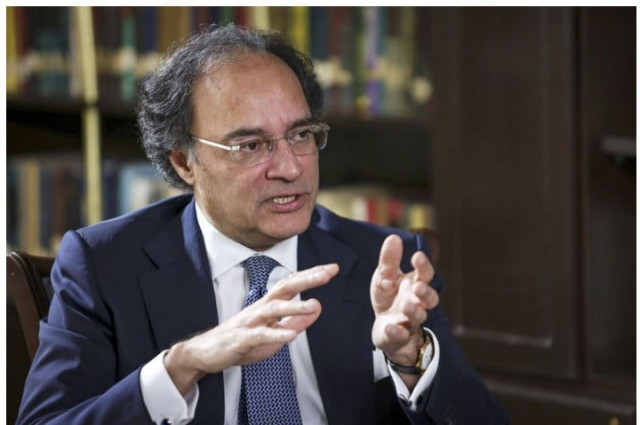FM Aurangzeb expects rupee stability post-IMF talks
Only thing which can be a wild card is international oil price, says finance czar

Finance Minister Muhammad Aurangzeb has said that the government expected minimal devaluation of the rupee following talks with the International Monetary Fund (IMF), a report by Bloomberg said.
The finance minister is currently in Washington to attend the spring meetings organised by the IMF and the World Bank (WB). He said that the rupee typically depreciates between 6% and 8% during a typical year.
“I don’t see the need for any step change,” Aurangzeb said, citing solid foreign exchange reserves, a stable currency, rising remittances, and steady exports.
He added that previous IMF loans to Pakistan had resulted in massive rupee devaluations, but this time, the outcome was expected to be different.
“The only thing which can be a wild card, although in our projections we should be okay, is the oil price,” he said.
Read IMF sees further uptick in Pakistan’s inflation
The minister also expressed Pakistan’s commitment to ensuring sustainable economic development and growth.
The finance czar pointed out the three key reform areas of taxation, energy, and privatization, adding that the agricultural sector performed better during the current fiscal year.
The major economic indicators of Pakistan including remittances showed better results, the minister said and added that the government was committed to engaging in a broader expansion program with the IMF.
He further said that Islamabad expected an IMF delegation to visit the country in May for a staff-level agreement on the next loan programme by the end of June or early July.
Earlier, IMF Managing Director Kristalina Georgieva listed tax base, more contributions from the rich, and transparency in public spending among important issues to be solved by Pakistan to boost its economy for a follow-up programme.
Georgieva confirmed that Islamabad was in discussions for a follow-up programme to the SBA, but stressed it had important issues to solve.
“There are very important issues to be solved in Pakistan: the tax base, how the richer part of society contributes to the economy, the way public spending is being directed and of course, creating ... a more transparent environment,” she said.
“The country is turning to the fund for potentially having a follow-up programme and there is a commitment to continue on this path,” Georgieva added, highlighting the pending issues that Pakistan still needed to address.



















COMMENTS
Comments are moderated and generally will be posted if they are on-topic and not abusive.
For more information, please see our Comments FAQ